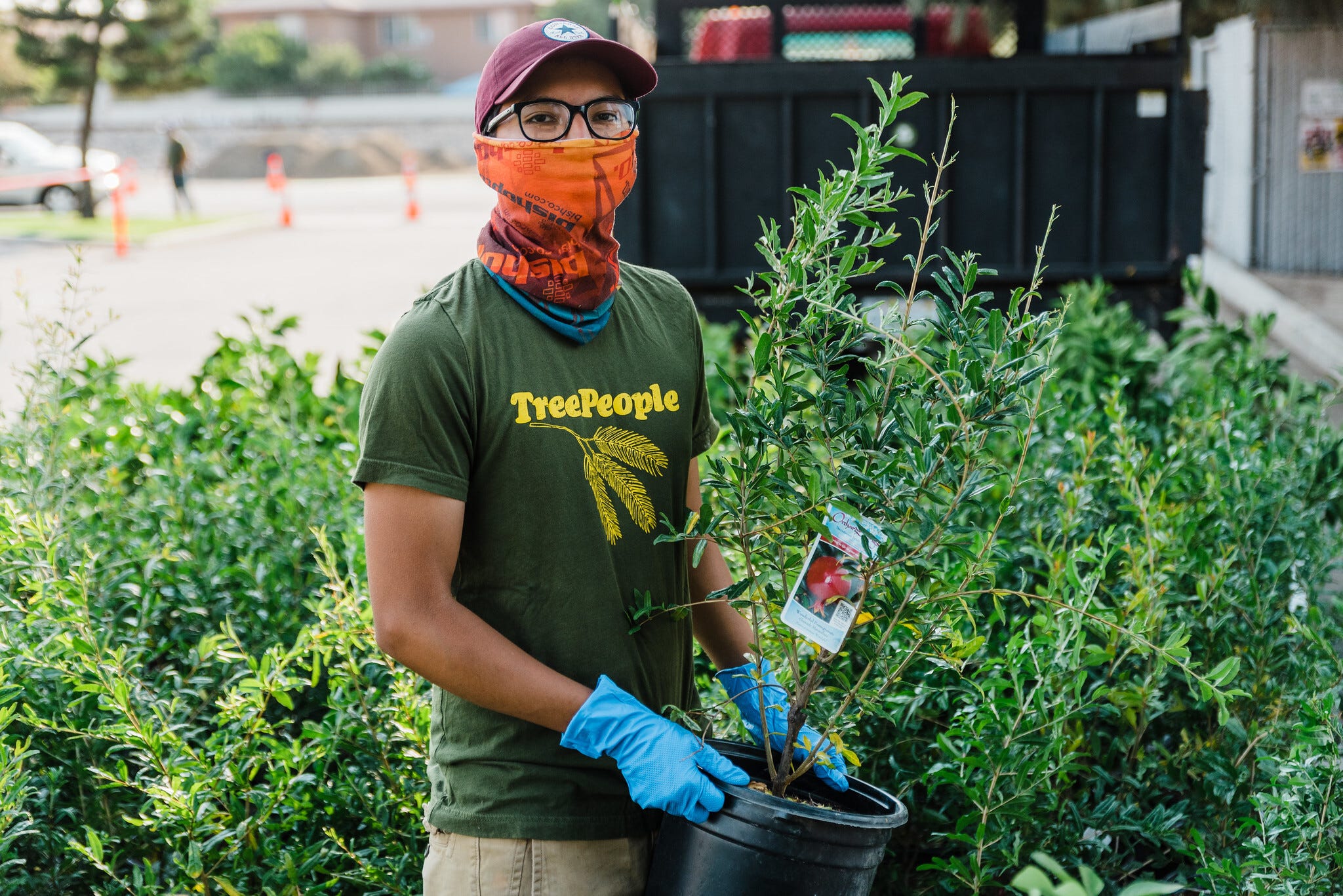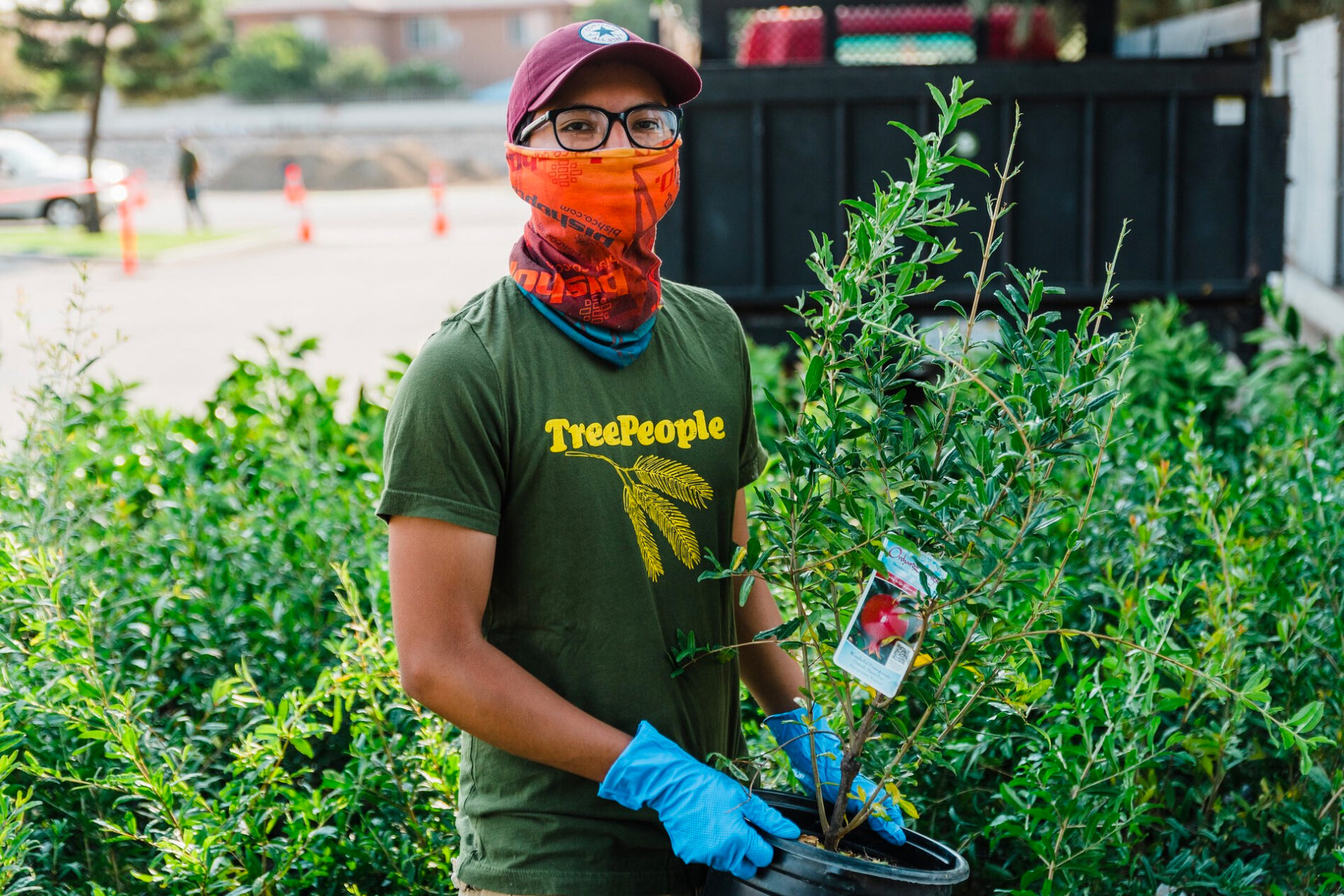By Jean-Paul Renaud

TreePeople distributed free fruit trees on August 14 to 250 households in Huntington Park, which suffers from some of the worst pollution, lowest shade coverage, and some of the most limited access to healthy food in Los Angeles County.
TreePeople staff members and volunteers distributed mango, lemon, orange, and pomegranate trees to Huntington Park residents who pre-registered online at the Huntington Park Community Center. In partnership with city officials, TreePeople set up a temporary drive up distribution center, following Center For Disease Control guidelines in protecting residents, staff and volunteers from the spread of COVID-19.
TreePeople’s research shows that planting more trees reduces extreme heat in communities, improving public health while also beautifying cities. Fruit trees are particularly effective in areas known as “food deserts,” which lack access to clean and healthy food.
“It is no coincidence that socio-economically underserved communities in Los Angeles County happen to have the least tree canopy and the least access to healthy food,” said Cindy Montanez, TreePeople CEO. “Trees help to cure these inequities. TreePeople is committed to partnering with communities to create greener and healthier neighborhoods for everyone.”
Following COVID-19 safety guidelines, TreePeople staff and volunteers wore protective masks and gloves, sanitized materials and maintained social distancing guidelines throughout their distribution. Residents were also required to wear masks in order to receive their trees.
“These trees will help our community get the food that they need, especially during this pandemic”, said Manny Manuel “Manny” Avila, Mayor of Huntington Park. “Even preschoolers know that trees bring us fresh air, beautify our streets and help protect us from extreme heat. Thanks to TreePeople, our residents will get to enjoy these benefits.”
Along with their trees, residents received instructions that cover best practices for planting and caring for their tree. This fruit tree distribution was generously sponsored by Judith R. Nelson and LP167 of the MITT Legacy Program.

